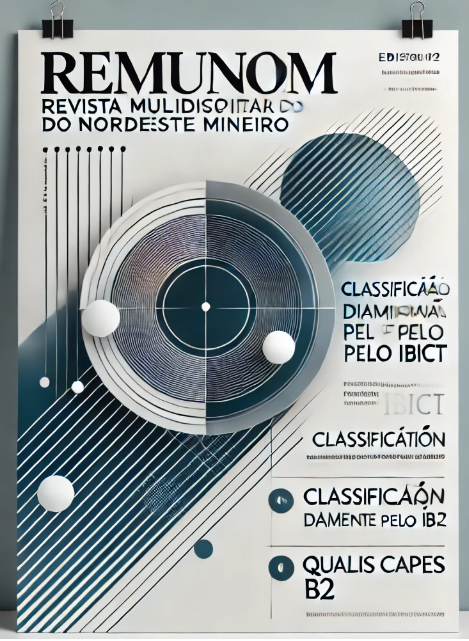A PLAYFUL PROPOSAL FOR TEACHING AND LEARNING ANALYTICAL CHEMISTRY
DOI:
https://doi.org/10.61164/rmnm.v7i1.3741Keywords:
Active methodologies, higher education, Gamification in teachingAbstract
Mediated learning is a pedagogical approach in which a facilitator acts as a bridge between the studentand the content, helping to achieve a deeper and more meaningful understanding of the content. Among the various forms of mediation, playful activities stand out as an effective strategy to engage students and make learning more playful and dynamic. In this context, the presented work proposes the creation of a didactic game entitled "Precipitation Volumetry: The Chemical Challenge", developed to assist in teaching this subject in higher education courses. The game was designed using low-cost materials, making it easier to implement. It consists of a board, a set of cards with questions of different levels of difficulty, dice and player pawns. The proposal aims to make the assimilation of Analytical Chemistry concepts more interactive, reducing students' resistance to the subject and encouraging more active participation in the learning process.
References
ALMEIDA, A. Ludicidade como instrumento pedagógico. Cooperativa do Fitness, Belo Horizonte, jan. 2009. Seção Publicação de Trabalhos.
BETTELHEIM, B. Uma vida para seu filho: pais bons o bastante. Rio de Janeiro: Campus, 1988.
CHASSOT, A.. Alfabetização científica: questões e desafios para a educação. 5. ed. Ijuí: Editora Unijuí, 2011
CUNHA, M. B. da. Jogos no Ensino de Química: Considerações Teóricas para sua Utilização em Sala de Aula. Revista Química Nova na Escola. v. 34, n. 2, 2012.
FEUERSTEIN, R. (1997). Mediated Learning Experience: Theoretical, Psychosocial, and Learning Implications. International Academy for Research in Learning Disabilities.
FREIRE, P.. Pedagogia do Oprimido. 50. ed. Rio de Janeiro: Paz e Terra, 2011.
GROSSI, M. G. R. O lúdico na aprendizagem de alunos de cursos técnico, graduação e mestrado: relatos de experiências. Revista Ibero-Americana de Estudos em Educação, v. 12, n. 3, p. 1689–1709, 2017.
HOPPE, L.; KROEFF, A. M. S. Lúdica Educação no Cenário do Ensino Superior. Revista Veras, v.4, n.2, p.164-181, 2014. DOI: 10.14212/veras.vol4.n2, 2014.art175.
HUIZINGA, J.. Homo Ludens: O jogo como elemento da cultura. São Paulo: Perspectiva, 2020.
KAPP, K. M.. The Gamification of Learning and Instruction: Game-based Methods and Strategies for Training and Education. Wiley, 2012.
LOZZA, R.; RINALDI, G. P. O uso dos jogos para a aprendizagem no ensino superior. Caderno PAIC, [S. l.], v. 18, n. 1, p. 575–592, 2017. Disponível em: https://cadernopaic.fae.edu/cadernopaic/article/view/264.
MACEDO, L. de. Os Jogos e sua importância na escola. São Paulo, 1995.
MORAES, R.; MANCUSO, R.. Educação em Ciências: pesquisa e ensino. Porto Alegre: EDIPUCRS, 2004.
MOREIRA, M. A.; MASINI, E. F. S. Aprendizagem Significativa: A Teoria de David Ausubel. São Paulo/SP: Ed. Centauro, 2006.
NOVAK, J. D.. Learning, Creating, and Using Knowledge: Concept Maps as Facilitative Tools in Schools and Corporations. Routledge, 2020.
NÓVOA, A.. Profissão Professor. Porto: Porto Editora, 1991.
SALEN, K.; ZIMMERMANN, E. Regras do design de do jogo: fundamentos jogos. São Paulo: Blucher, 2012.
SANTOS, W. L. P. dos. Educação em química: compromisso com a cidadania.3. ed. Ijuí: Editora Unijuí, 2008.
TARDIF, M. Saberes docentes e formação profissional. 14. ed. Petrópolis: Vozes, 2012.
VYGOTSKY, L. S.. Mind in Society: The Development of Higher Psychological Processes. Harvard University Press, 1978.
Downloads
Published
How to Cite
Issue
Section
License
Copyright (c) 2025 Revista Multidisciplinar do Nordeste Mineiro

This work is licensed under a Creative Commons Attribution-NonCommercial-ShareAlike 4.0 International License.




